Meredith Poll Explores Perceptions of Women in Politics and Law Enforcement
- Published

With less than three weeks until Election Day and the possibility that Democrat Hillary Clinton will be elected as the first woman president in our nation’s history, according to the newest Meredith College Poll, most North Carolinians (72%) state that there are no differences between men and women as political leaders.
Also, with so much national attention in the presidential campaign being on the differing visions of Donald Trump and Hillary Clinton on the issue of crime and safety, a large majority of North Carolinians perceive themselves to feel safe (62%) and have respect for police officers (92%).
However, with much media attention on episodes of police officers shooting civilians, including the highly publicized shooting of Keith Lamont Scott in Charlotte on September 20, a majority of North Carolinians feel that male police officers are much more likely to use excessive force (59% v. 3%) or exceed their authority (46% v. 6%) than are women police officers.
Voter Satisfaction with the Direction of the Country and Feelings about Safety
Nearly three-quarters (73%) of North Carolina registered voters report being dissatisfied with the direction of the country. Registered Republican voters report the highest level of dissatisfaction with the direction of the country (84%), while registered Democratic voters report the least (61%). Registered unaffiliated voters’ level of dissatisfaction was just below the state average (71%). The level of dissatisfaction has remained consistent since the last administration of this question by The Meredith Poll in March.
In terms of feelings about safety, a majority of North Carolinians report feeling safe (62%) with some differences between men and women in North Carolina (68% of men felt safe or very safe v. 60% of women) or between people of different party affiliations (68% of Democrats, 58% of Republicans, and 63% of unaffiliated voters). In terms of race and ethnicity, whites feel safer than nonwhites in North Carolina (62.6% v. 56.5%).
Women as Political Leaders
With the historic nomination of Hillary Clinton, North Carolinians face the possibility of electing the nation’s first woman president. At the Democratic convention in July, there was a great deal of attention given to the theme of Clinton breaking the glass ceiling that has been associated with the underrepresentation of women in elected office. In North Carolina, women currently hold 24 percent of elected offices, a percentage that has changed little over the last two decades.
A large majority of North Carolinians (72%) state that men and women are equally effective as political leaders and only a relative small number of citizens believe that men make better political leaders (13%) or that women are superior political leaders (7%). As compared to 2015 when the same questions were used in a previous version of the Meredith Poll, more people consider men and women to be indistinguishable in terms of being better political leaders and fewer people identify a specific gender as superior.
Males are more likely than females (85% v. 75%) to state that there are no differences between men and women as political leaders. Female citizens are more likely than males to favor either men (9% v. 4%) or women (16% v. 11%) political leaders. In terms of party affiliation, Democrats are far more likely to see women more favorably or at least equal to men in terms of political leadership, than are Republicans. Over one-quarter of Republicans (26%) see men as better political leaders, whereas only 7 percent of Democrats favor men in the same roles.
In terms of specific attributes of political leadership, most North Carolinians consider that there are no differences between men and women in terms of standing up for what they believe in or keeping government honest. The one area in which women have an advantage is in working out compromise with almost one-third of North Carolinians (28%) stating that women were better than men and half of the state’s citizens believing that women were equal to men.
In policy areas there were greater differences in the perceptions of men and women political leaders. Men were considered significantly more capable at dealing with issues involving public safety and national security, while women were considered to be better than men at dealing with social issues, such as education. On economic issues, there were few differences among the perceptions of men and women political leaders.
Respect for Law Enforcement and Who Makes a Better Police Officer or Chief
A large majority of North Carolinians (69%) have great respect for law enforcement officers in the state, with only 4 percent of its citizens stating that they have very little respect for officers. Among demographic groups, whites have higher respect for police officers (74.9%) than do nonwhites (62.6). Republicans have significantly higher levels of respect for those in law enforcement (81%) than do Democrats (63%) or unaffiliated citizens (64%).
The most striking difference in respect for law enforcement, however, is related to age with young people possessing decidedly less respect for law enforcement officers than their older counterparts. Those in the youngest age category (19-29) had about half as much respect for police officers as those in the oldest age category (76+).
In terms of police officers themselves, over three-quarters of North Carolinians believe that men and women officers are equally capable, with only 16% stating that male officers were more capable and 3 percent stating that female officers were superior. Also, when asked about whether men or women made better police chiefs, over two-thirds of North Carolinians (68%) felt there were no differences between men and women in law enforcement leadership. Twenty-one percent felt that men made better police chiefs and five percent perceived that women made better police chiefs.
In terms of qualities associated with police officers, most North Carolinians believe that men and women police officers equally possess compassion and a sense of ethics, as well as possessing the skills to protect the public.
Some of the negative traits often associated with police officers, such as using excessive force or exceeding their authority, are where many North Carolinians favor women police officers over men. Only 3 percent of citizens consider women more likely to use excessive force, while 59 percent consider men more likely to do so. Similarly, 46 percent of North Carolinians state that men are more likely to exceed their authority, while only 6 percent consider women more likely to do so.
About The Meredith College Poll
The Meredith College Poll uses a stratified random sample of households with telephones and wireless (cell) telephone numbers. The survey was conducted using a livecaller, dual frame (landline and cell phone) survey of 487 registered voters of North Carolina between September 18-22, 2016. Meredith College students administer the survey as part of the College’s commitment to civic engagement.
News Director
316 Johnson Hall
(919) 760-8087
Fax: (919) 760-8330


3800 Hillsborough Street Raleigh, NC 27607-5298 | (919) 760-8600 Fax: (919) 760-8330 | © 2022 All Rights Reserved.